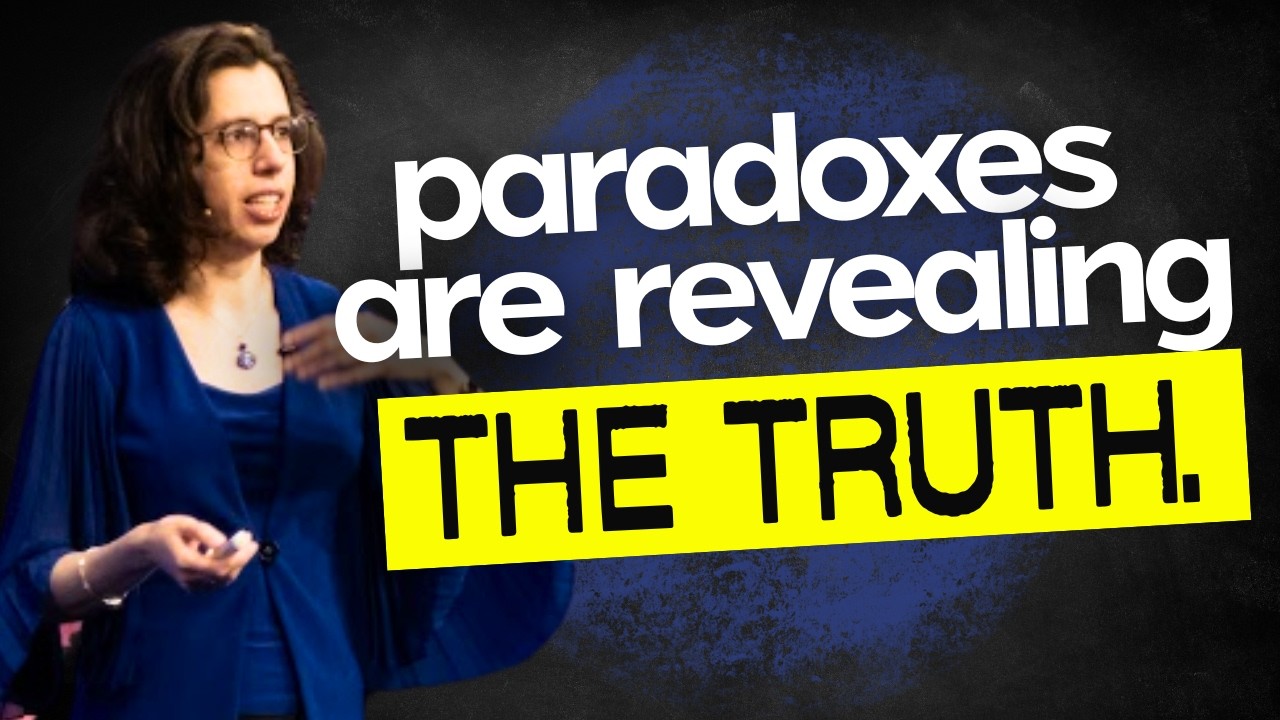Netta Engelhardt’s lecture explores the black hole information paradox, explaining how the conflict between general relativity and quantum mechanics arises from the question of whether information can escape a black hole. She highlights recent breakthroughs showing that information is preserved and encoded in Hawking radiation in a highly scrambled form, suggesting that while information does escape, it remains practically inaccessible, pointing toward the need for a unified theory of quantum gravity.
In this lecture, Netta Engelhardt explores the profound question of whether information can ever escape from a black hole, a puzzle that has challenged physicists for decades. She begins by defining what a black hole is according to general relativity: a region of spacetime where gravity is so strong that nothing, not even light, can escape. This leads to the classical understanding that information falling into a black hole is lost forever. However, this notion conflicts with the principles of quantum mechanics, which assert that information cannot be destroyed. This contradiction forms the basis of the black hole information paradox, a fundamental problem at the intersection of quantum mechanics and general relativity.
Engelhardt then delves into the basics of quantum mechanics, focusing on the concept of quantum information and entanglement. Using the analogy of quantum coins, she explains how quantum states can exist in superpositions and how entangled particles share linked states such that measuring one instantly affects the other, regardless of distance. This entanglement is crucial for understanding how information might be encoded and preserved in quantum systems, including those involving black holes. The paradox arises because if one particle of an entangled pair falls into a black hole and the other remains outside, the information about the system seems to be lost when the black hole evaporates.
The lecture proceeds to describe Hawking radiation, a quantum effect where pairs of entangled particles spontaneously appear near the event horizon of a black hole, with one particle escaping as radiation and the other falling in. This process causes the black hole to lose mass and eventually evaporate completely. The problem is that the escaping radiation appears to carry no information about what fell into the black hole, implying information loss. This conflicts with quantum mechanics, which forbids such loss, thus deepening the paradox. Engelhardt emphasizes that resolving this paradox requires a theory of quantum gravity, which would unify general relativity and quantum mechanics in extreme conditions.
Recent advances have shed light on this paradox, showing that gravity affects entanglement in subtle ways that can preserve information. Two landmark papers in 2019 demonstrated that the information is not lost but rather encoded in the Hawking radiation in a highly scrambled form. This means that while information does escape from the black hole, it does so in a way that is extraordinarily difficult to decode, requiring immense computational effort to unscramble. This insight suggests that information conservation holds true, but the mechanism involves complex quantum gravitational effects that modify our classical understanding of black holes.
In conclusion, Engelhardt affirms that information does escape from black holes, resolving the paradox in principle, but many questions remain open. The information emerges in a mangled, scrambled state, making it practically inaccessible and preserving the illusion that nothing escapes. This ongoing research into the black hole information paradox is a crucial step toward understanding quantum gravity and the fundamental nature of the universe, including the origins of the cosmos and the fate of information in extreme gravitational fields. Engelhardt’s lecture highlights both the progress made and the mysteries that continue to inspire physicists in this frontier of theoretical physics.
